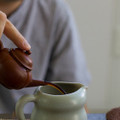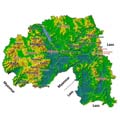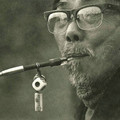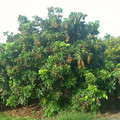Experiencing Tea - Wrong Fu Cha
„After initial taste and aroma, the first thing tea drinkers are likely to focus on is known in Chinese as 回甘 [huí gān]. In English, a near literal translation is “Returning Sweetness,” but we can think of this loosely as aftertaste. You can experience this clearly in most good teas, and probably already have. In the best teas, though, the taste can go on for hours.“

Quotes Tags: Pu-erh, Experiencing tea
„The next place to focus is feeling in the throat. Tea here can be cooling or warming, rough or wet. Often drinking good tea will give you the sensation of a ball in your throat. It is good to consider how far down the tea goes — in other words, where the sensation is no longer apparent. If the tea slips down without any notice, it is just a drink. Many good teas will stop somewhere in the middle of your throat. If it gives a pleasant feeling all the way down to your core, it is truly something special.“

Quotes Tags: Pu-erh, Experiencing tea
„Possibly the most nebulous of tea’s qualities are ascribed to 茶氣 [chá qì] — a tea’s “energy.” Most readers will probably be familiar with at least some of the wide ranging effects it is attributed with. Practically any physical or mental stimulus outside of the mouth, nose, and throat falls into the realm of cha qi.“

Quotes Tags: Pu-erh, Experiencing tea
„Some more obvious manifestations of cha qi are a heating or cooling of the extremities (eg, sweaty palms when drinking a ‘warming’ tea like aged puerh or heavily roasted oolong), a flushing of the face, or a measurable change in mood. In a small group, tea can either lead to deep conversation, giddy laughter, or contemplative silence.“

Quotes Tags: Pu-erh, Experiencing tea
Theme
Tea by region
We will help you with tea selection.
Do you like quality loose tea?
We will help you to find the right one for you. Be inspired by tea ratings of other tea lovers. Rating stars could help you.


Review your cup of tea.
Review the tea you are drinking and help other tea lovers to find the right cup of tea.



Teas
2012 Menghai "Spring of Menghai" Raw Pu-erh
 1 review
1 reviewPremium blend of first flush of spring tea * Batch 201This is a newer Menghai release, first...
2012 Mangzhi Huang Shan Cha Xiao Bing 200g
 1 review
1 reviewThis tea came from Mangzhi mountain which is located in the west of Xiangming village Mengla county, and...
2003 CNNP Yi Wu Arbor Ming Chien „Hundred
 1 review
1 reviewProcessing: discontinuation of oxidation, rolling, sun drying, humidification, pressing performed...
Quotes
„Green tea steeping time and temperature varies with different tea. The hottest steeping temperatures are 81 to 87 °C (178 to 189 °F) water and the longest steeping times two to three minutes. The coolest brewing temperatures are 61 to 69 °C (142 to 156 °F) and the shortest times about 30 seconds.“



 Shops
Shops Share on Facebook
Share on Facebook












